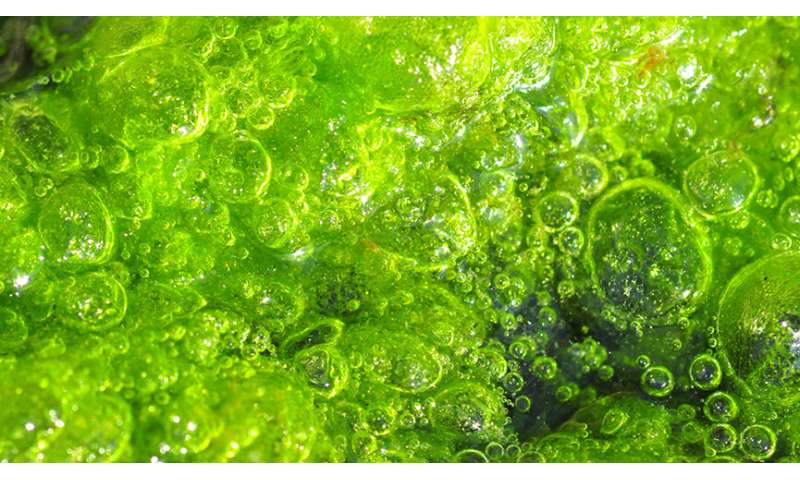New bacteria and algae process could help decarbonize UK military

A new biological engineering process that could help to decarbonise the UK military is set to be developed by researchers at the University of Sheffield.
The cutting-edge research, led by academics in the University of Sheffield's Department of Chemical and Biological Engineering, is developing a novel bioprocess that uses a mixture of microbes to remediate waste.
The Ministry of Defense (MOD) generates large volumes of waste oils, fuels, lubricants and other liquid hydrocarbon waste each year. The University of Sheffield researchers will investigate how to break down complex hydrocarbon waste products using bacteria, turn them to carbon dioxide and then use algae to capture the CO2.
The team then plans to extract the fatty acids from the algal biomass and develop polymer chemistry methods for making biodegradable foams. These foams can be used in a variety of ways, including as synthetic soils to grow nutritional plants in water scarce environments.
This new research offers the opportunity to protect the environment, save money for the Ministry of Defense and the taxpayer, while allowing the MOD to manage and reduce its own waste.
The team not only aims to recover clean water but also make new by-products, while minimizing CO2 emissions.
Dr. Jagroop Pandhal, from the University of Sheffield's Department of Chemical and Biological Engineering, said: "The MOD has got a mixture of different types of hydrocarbon waste. We want to effectively break these down into simple components which are less harmful to the environment, and then build them up again into useful resources. These steps will be undertaken by selected microbial strains working together as a team. What we want to do is resource recovery, so it's not just about cleaning up the waste, it's trying to get resources out of it."
Although there are many applications for converting algae into useful products, here researchers will investigate conversion of the oils into biodegradable plastics with unique properties, replacing unsustainable sources currently used.
Dr. Pandhal said: "Algae are able to absorb CO2 for growth, similar to any other plant, and therefore are able to capture this gas when it's released during bacterial degradation of the hydrocarbon waste. And it's this algal biomass that provides a treasure trove of bio-based products."
As well as being used in military bases, it is intended the technology can be further developed into portable bioprocessing systems for overseas bases and operational deployments.
Provided by University of Sheffield
No comments:
Post a Comment